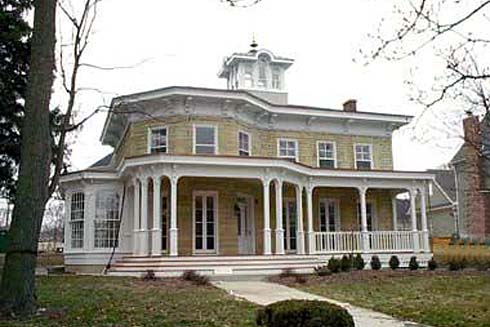CAP RATE
When evaluating potential real estate investments, the capitalization rate (CAP rate) serves as a fundamental metric for assessing the profitability and risk associated with a particular property.
Understanding the nuances of CAP rate empowers investors to make informed decisions, optimize their investment portfolios, and navigate the dynamic landscape of real estate with confidence.
What is CAP Rate?
The capitalization rate, often referred to as CAP rate, is a key metric used in real estate to evaluate the potential return on investment of a property. It is calculated by dividing the property's net operating income (NOI) by its current market value or acquisition cost. The resulting percentage represents the anticipated annual return an investor can expect to generate from the property.
Importance of CAP Rate
CAP rate serves as a crucial tool for real estate investors in several ways:
Comparison Tool:
CAP rate allows investors to compare different properties by assessing their income-generating potential relative to their market value. This helps in identifying lucrative investment opportunities and making well-informed decisions.
Risk Assessment:
A higher CAP rate may indicate a higher potential return but could also signify higher associated risks. Conversely, a lower CAP rate may represent a more stable investment with lower risk. Understanding these nuances aids investors in balancing risk and return in their portfolios.
Market Trends:
CAP rate can also offer insights into market trends and investor sentiment. Shifts in CAP rates within a specific market or property type can indicate changes in demand, supply, or overall market conditions.
Investment Strategies:
Investors can utilize CAP rate as a guiding factor in formulating their investment strategies. Whether focusing on high-yield properties or seeking stability through lower-risk investments, CAP rate analysis informs strategic decision-making.
Calculating CAP Rate
Calculating CAP Rate
To calculate the CAP rate of a property, the following formula is used:
[ ext{CAP Rate} = frac{ ext{Net Operating Income (NOI)}}{ ext{Property Value}} imes 100 ]
Where:
NOI is the property's annual income minus operating expenses, excluding mortgage payments and income tax.
Property value is the current market value or acquisition cost of the property.
Conclusion
In conclusion, the capitalization rate (CAP rate) is an indispensable metric in real estate investment decision-making. By comprehensively understanding and utilizing the CAP rate, investors can effectively evaluate the income-generating potential and associated risks of properties, guiding them towards sound investment decisions and optimized portfolio management in the dynamic realm of real estate.
I've provided a comprehensive overview of CAP rate in real estate investments. If you need further information or have any specific requirements, feel free to let me know.
How does CAP rate impact investment strategies in real estate?
Can CAP rate help predict shifts in market trends?
What are the key factors affecting the calculation of CAP rate?
MORE REAL ESTATE TERMS
A, B, C, D, E, F, G, H, I, J, K, L, M, N, O, P, Q, R, S, T, U, V, W, X, Y, Z
Featured New Home

Featured Mortgage Brokers
- 203K.TV, LAGUNA HILLS, CA
22501 CAMINITO COSTA
LAGUNA HILLS, CA 92653 - Intercap Lending, mortgage broker in Albuquerque, NM
5600 Wyoming Blvd NE Ste 20
Albuquerque, NM 87109 - PRIMARY RESIDENTIAL MORTGAGE INC, MANCHESTER, CT
63 E CENTER ST FL 3
MANCHESTER, CT 6040 - American Finance-Thomasville, mortgage broker in Thomasville, GA
15179 US Hwy 19 South
Thomasville, GA 31792 - BANK OF AMERICA NA CHARLOTTE, FOREST HILLS, NY
10510 QUEENS BLVD STE 2
FOREST HILLS, NY 11375